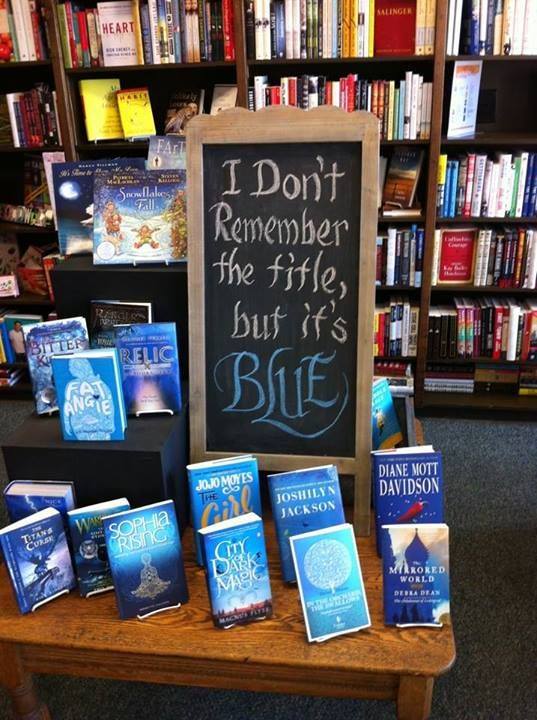Con Etiquette: Q&As About Q&As
[Photo by Ed Rojas on Unsplash]
Summer’s here, and for comic book nerds, that means one thing: convention season! The big kahuna, San Diego Comic-Con, takes place at the end of July, but it’s far from the only event that brings together comics, movies, TV, and gaming under one roof. There’s something different at every con, but there are a few things that tend to span every single event. The sales floor, where fans can actually buy comics (as well as merchandise and collectibles). Artists’ alley and the autograph area, where fans can meet the creators and actors they love and get autographs and even photos with them. And the panels, where actors and creators entertain an audience with live discussions on everything from geek media to their upcoming season.
An increasingly common element to panels, especially panels featuring big-name celebrities, is the Q&A – an addition that should be illuminating and personal, but which often ends up more cringeworthy than celebratory. Although everyone wants to get involved in the Q&A, many fans don’t know quite what they should be doing when they get up to the mike… so we’ve got the only guide you’ll ever need to Q&A etiquette. Read on to have all your Qs and Q&As… A’d.
Q: How does this Q&A thing work, anyway?
A: If you’ve never been to a Q&A before, these are the basics. There will be a portion of the panel time set aside for questions from the audience. Sometimes, the host will simply ask people to raise their hands, but there is usually a mic set up that fans can form a line in front of (sit down in the line so that people around you can see the stage). When the Q&A portion starts, the first person in line asks the first question, then goes to their seat when it has been answered. Simple.
Q: So I can ask them anything?
A: Yes, as long as it’s not offensive. No asking about intimate details, private lives, or anything that may be a sensitive topic. They may be a celebrity, but that doesn’t mean it’s a free for all. When you are thinking of your question, it’s also a good idea to try and make it interesting and relevant for everyone listening. Remember, every person in that room is lined up to hear these people speak, so try to ask questions that are going to have interesting answers.
Q: How much time do I get?
A: As little as possible. The faster you ask your question, the more questions get answered, so try and keep it short and to the point. It can be intimidating to speak to your idol, so get your question clear in your head first, then ask. The people in line behind you will thank you.
Q: Can I talk about my movie/comic/book/project/youtube/dance group?
A: No. Don’t be the guy who abuses the Q&A to do a little shameless self-promotion. The rest of the convention-goers don’t want to waste five of the fifteen minute Q&A session hearing about your thing (no matter how good it is). Stick to simply asking the question. If you are really that great, maybe one day you’ll be the one on stage, and then you can talk about yourself for the whole hour.
Q: What about giving my book/resume/album/movie to the panelists?
A: Again, no. The Q&A is about the person on stage, not the person behind the mic. Please don’t use this to try and further your career, and remember that many celebrities have specifically called out this behavior as frustrating.
Q: But how else can I get my stuff into the hands of my idol?
A: Glad you asked! Head over to the autograph signing line, and do it there. When you get an autograph, you will also get a few minutes with your idol, and that’s the perfect time to make it all about you—how much you love their work, how it informs your own, etc. If they are going to accept something from you, it should happen here. If they won’t accept anything there, they won’t appreciate you trying to sneak it in during the Q&A.
Q: Fine, no self-promotion. What about telling them how much I love their work?
A: If you are at a panel devoted to a person, they probably already know that you are a fan. Still, a quick “I love your work” isn’t a problem. Spending three minutes on it is probably not the best idea, though. The question is the point, after all!
Q: What if the person in front of me asks the question I wanted to?
A: It’s always a good idea to come up with a couple of questions you can ask beforehand. Rehearse ‘em in your head to make sure they are short and snappy, and then if one gets asked, go to plan B.
Q: Can I ask a two-part question?
A: Yes! As long as it’s really a two-parter, not a sneaky attempt at asking two separate questions. “What was your favorite episode and why?” is a two-parter. “What was your favorite episode and favorite co-star?” is pushing it. “What was your favorite episode and what was it like working on that other movie?” is going too far.
Q: Can I ask about past projects?
A: Sure! Just try and come up with a question that hasn’t been asked before. If you can find the answer online, do that, and ask something new. Get specific, and remember that most creators and actors want to talk about what they are doing now, or next, rather than just go over their big hit from ten years ago.
Q: Can I ask about a great story they told on another panel?
A: Please don’t. If you know the story, that means you’ve already heard it, and hearing it while in the same room as them really isn’t worth taking up time on a Q&A. Ask a question about the story, if you want, but don’t ask for an exact re-telling.
Q: Can I ask them to sing/dance?
A: Absolutely! Some stars like John Barrowman will be all over that. But be prepared for them to say no, and if they do, that’s your question. You don’t get a do-over.
Q: Can I ask for advice?
A: Yes! As long as the advice is very specific to the person you are asking. Some amazing questions come from asking for personal advice. Just tailor it to the person. If you could ask every panelist at the convention the same question, maybe think up something a little more relevant.
Q: The panel ended and they didn’t get to me! Can I just stand up and shout my question out?
A: Heck. No. You may have noticed that much of the advice above is about keeping questions short, to the point, and specific to the actor/audience. That’s so that the panel can get through as many questions as possible, to avoid this disappointing moment. However, no matter how disappointed you are at missing out, don’t shout out the question. If everyone did that, it would be chaos—and it’s just plain rude.
Q: C’mon, it’s a REALLY good question.
A: Then get on social media, and ask it there! Q&As are no longer the only way to get in touch with a celebrity, so take advantage of autograph signing time, Twitter, Facebook, Reddit AMAs, and all the other options out there.
Q: No exceptions?
A: If you want to buy the entire room donuts, and you need to check how much time you have to go buy them, then sure. This happened at a Kevin Smith panel last year, and is pretty much the only time that everyone involved will forgive you. Donuts are delicious.
Q: Donuts are delicious. Any last advice?
A: To paraphrase John F Kennedy: “Ask not what your panelist can do for you, but what you can do for your panelist." Try to make your questions interesting for the person on stage to answer, and entertaining for other audience members to listen to, and you may just hit on that magic answer that makes everyone happy. Seeing an idol light up at an interesting question about their passion project is more satisfying than seeing them nod along while you rhapsody about yours.
Happy Asking! For more San Diego Comic-Con tips and tricks, visit our SDCC Prep Week page.

